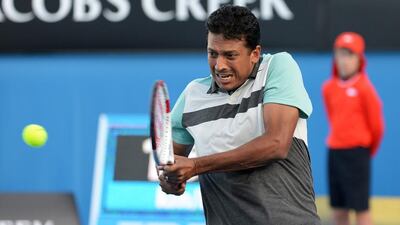Hands up if you feel tennis has a problem right now.
No? Not really? And why would you? We are just coming to the end of a golden age in men’s tennis. Roger Federer and Rafael Nadal are two of the greatest players of all time. Novak Djokovic may eventually end up alongside them.
They are tailed by a group that has helped create some of the most mind-blowing tennis ever seen on the men’s circuit.
The intensity and ferocity of their rivalries are legendary already. Given that men’s tennis has not really experienced a prolonged fallow period since nearly forever, it means a bar that has always been rising has been raised further in the last decade.
The women’s circuit is not as settled, but it is nearly as compelling. Serena Williams, like Federer and Nadal, is a different conversation altogether and has carried this period by herself. But there is greater parity and openness than on the men’s tour, especially this year, when Serena has missed out. Nobody can say with confidence who makes the last four of a slam, let alone wins it.
The schedule is a little packed, but the circuit is well-established and global. There is, at the highest levels, good money to be made.
If our point is being laboured too much, it is only to ask this question: Why is the International Premier Tennis League (IPTL) necessary?
Hitherto, the Premier League-isation of a sport – if we can make it a verb – has usually meant glamming up and enriching an ailing sport by handing it over to private franchise ownership. Cricket’s Indian Premier League (IPL) is the clearest example of how this works well. Cricket needed to become shorter, to pay its players better, to be sexier than it was.
In India, where the IPTL originated, this is the new sporting contagion. Football has a shiny new league. Hockey has had, at last count, a couple. Golf attempted one, as well. Even kabbadi has its own glitzy makeover now.
Arguably all these sports have needed it, or needed it within India, at least. Does tennis? Mahesh Bhupathi, the Indian doubles legend and progenitor of the IPTL, seems to think so.
To be fair to Bhupathi, if one of the intentions of the IPTL is to give tennis a greater presence in Asia, then there is something to be said for the game’s top stars and legends playing in more locations in this part of the world. It does not reach out far enough, but that will likely grow.
The other reason Bhupathi noted in his trip to Dubai earlier this summer was the duration of tennis matches. This, he says, is a problem for broadcasters: "I think we do have a problem vis-a-vis tennis. If you look at TV broadcasts, we cannot control the time of a match.
“We have changed the traditional scoring format to speed up the games and allow us to expose up to 24 different players in one evening. On the broadcasting side, they will, for the first time, be able to schedule predictable starting and finish times of each match.”
It is a debate for sure, more so in this time when Nadal, Federer, Djokovic and Andy Murray have pounded out extended epics: nine of the 15 longest men's matches in history have been played in the 2000s. But if that is even a problem – and this is unclear – is it inherent or merely a by-product of this particular time in men's tennis?
Does reducing it to single-set shoot-outs, with power points (in which the next point counts double), provide a solution without affecting quality, or is it just a gimmick? Are they simply trying to latch onto a fad, as one Bhupathi comment suggests: “I think the world is moving towards a lot of short-format content when it comes to sport and we are trying to pick up that trend.”
Neither does the IPTL spread any wealth, which the genre has done in other sports and which, arguably, tennis needs. If it breaks what can become the grinding monotony of the tour, week after week of similar tournaments in different locations, then it is not clear how. Having fewer tournaments is a better answer to that.
More team-based tennis is not, on the other hand, a better answer to anything. Remember World Team Tennis? Neither does anyone else.
Every season, the Davis Cup looks more anachronistic on a stateless circuit of individuals, an idea with dwindling appeal.
“It was time for innovations in tennis and, similar to what the IPL has done in cricket, I imagine the IPTL will for tennis,” Bhupathi said.
Tennis is not cricket. It is not perfect, either. How the IPTL, which could easily end up a glorified exhibition league, will improve it is not clear.
osamiuddin@thenational.ae
Follow us on Twitter at @SprtNationalUAE

